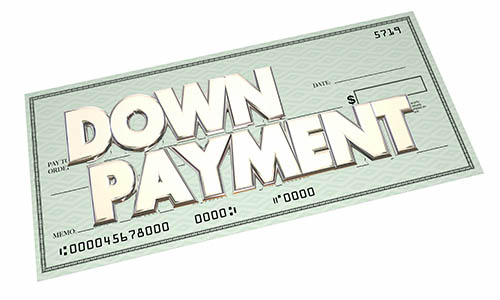 If you’re just getting into the real estate market, you may have heard that 20% down is the ideal percentage in order to lower your monthly payments and get your mortgage application approved. However, while 20% is often suggested, many people struggle to come up with this amount of money. If you’re staving off home ownership, here are some reasons you may not need to hold off as you long as you thought.
If you’re just getting into the real estate market, you may have heard that 20% down is the ideal percentage in order to lower your monthly payments and get your mortgage application approved. However, while 20% is often suggested, many people struggle to come up with this amount of money. If you’re staving off home ownership, here are some reasons you may not need to hold off as you long as you thought.
Minimizing Your Insurance Costs
Putting down 20% of the total purchase price of your home is often suggested, but it doesn’t definitively mean that your application won’t be approved if you don’t. If you have a good credit score and are in good financial standing, putting less than 20% down means you’ll have to pay Private Mortgage Insurance (PMI); however, it can be worth paying the extra funds in order to get into the real estate market sooner and start paying into your most significant investment.
Mortgage Programs For Less Than 20%
It may seem less possible to buy a home if you only have 5 or 7% of the purchase price, but there are many programs in the United States that enable those with limited funds to apply for a mortgage. From the Federal Housing Administration (FHA) to Fannie Mae and Freddie Mac, there are many lenders that can offer you mortgage programs that will work for your situation. While higher rates come in tandem with a lower down payment, there are options out there for those who haven’t saved quite enough.
Why Put Down 20%?
Putting down 20% is not a necessity for mortgage approval or purchasing a home, but it can be a great means of saving money in the long run and reducing your interest rates. If you’re raring to get into the real estate market and don’t want to wait for the bills to stack up, that’s OK, but if you want to hold off and save up additional funds before diving in, this can mean more money and a more solid investment in the future.
20% is often the magic number when it comes to a down payment on a home, but you don’t require this percentage of your home’s price in order to get approved for a mortgage. If you’re currently considering diving into home ownership and would like to know more about the opportunities in your area, contact your local mortgage professional for more information.

 With the rising cost of real estate, many people feel that now is a good time to buy a home to ensure a good financial future. However, if you haven’t saved up enough money to make a down payment, it’s possible you may be considering whether or not you should borrow the funds. If you’re considering a loan from friends or family, here are some points you may want to think about before asking for a loan.
With the rising cost of real estate, many people feel that now is a good time to buy a home to ensure a good financial future. However, if you haven’t saved up enough money to make a down payment, it’s possible you may be considering whether or not you should borrow the funds. If you’re considering a loan from friends or family, here are some points you may want to think about before asking for a loan. Purchasing a home can be one of the most exciting and stabilizing investments of your life, but because of the expense, there are many ways you may be spending more money than you should. If you’re wondering about the financial soundness of your home investment, here are some things to consider before putting anything down.
Purchasing a home can be one of the most exciting and stabilizing investments of your life, but because of the expense, there are many ways you may be spending more money than you should. If you’re wondering about the financial soundness of your home investment, here are some things to consider before putting anything down. From mortgage to equity to debt-to-income ratio, there are many terms associated with home ownership that can be quite confusing if you’ve never been on the market for a home before. ‘Conforming loan limit’ may be a less familiar real estate term than the rest, but here are some things you’ll need to know about it and what it could mean for your biggest investment.
From mortgage to equity to debt-to-income ratio, there are many terms associated with home ownership that can be quite confusing if you’ve never been on the market for a home before. ‘Conforming loan limit’ may be a less familiar real estate term than the rest, but here are some things you’ll need to know about it and what it could mean for your biggest investment. A monthly mortgage can seem like enough of a financial responsibility on its own, but there are many factors involved in home ownership that affect its fiscal feasibility. If you’re in the market for a house and are wondering how your income will stack up against the rest of your expenses, here’s how to determine a home cost that’s reasonable for you.
A monthly mortgage can seem like enough of a financial responsibility on its own, but there are many factors involved in home ownership that affect its fiscal feasibility. If you’re in the market for a house and are wondering how your income will stack up against the rest of your expenses, here’s how to determine a home cost that’s reasonable for you.